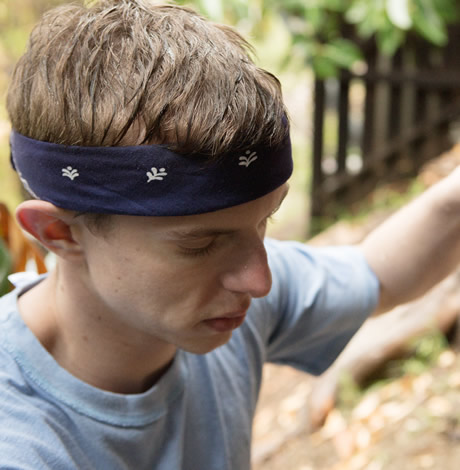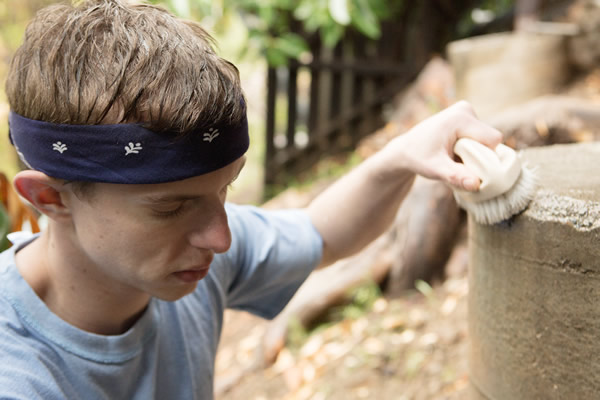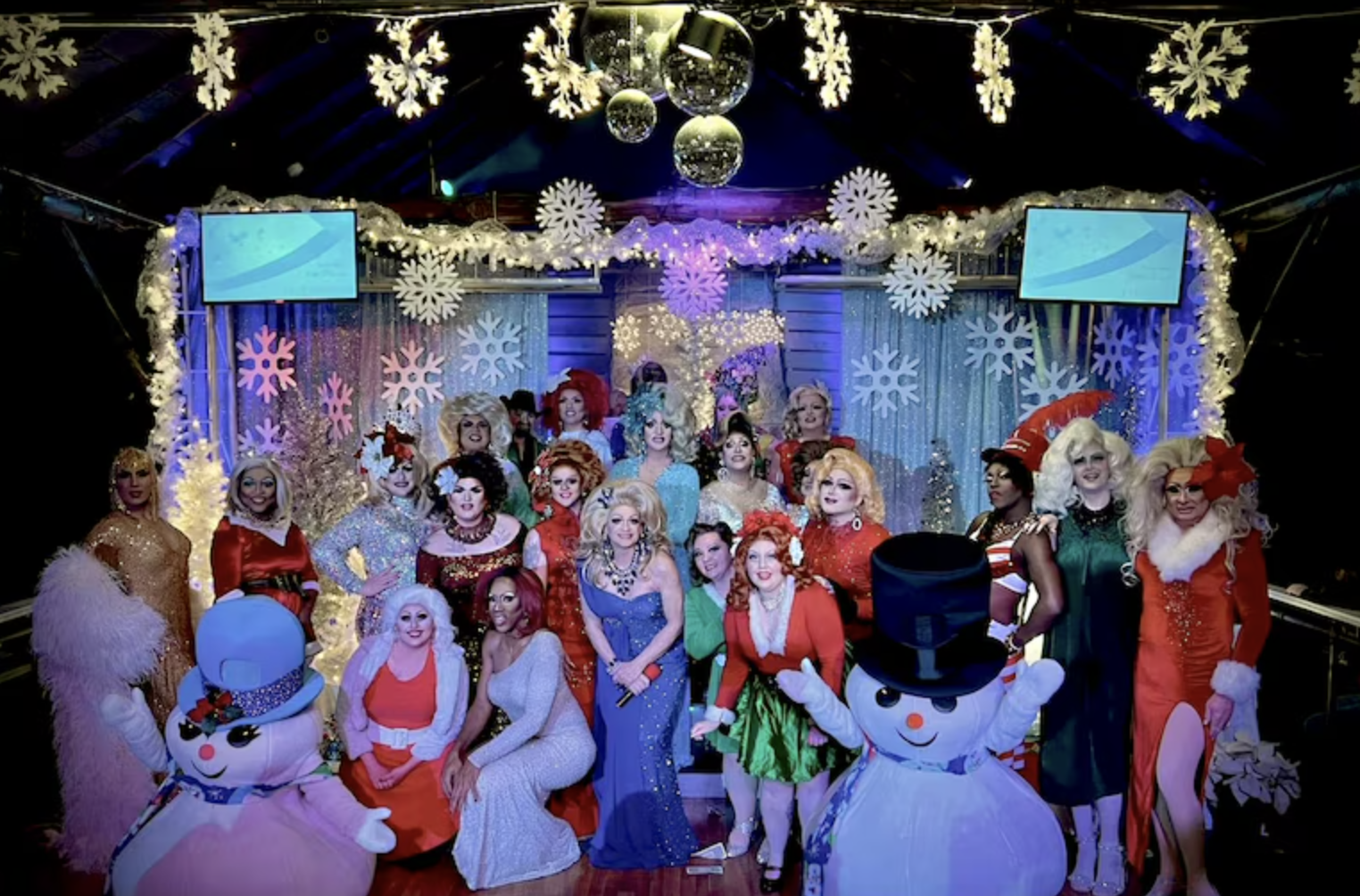News
Anti-gay views rampant in Dominican Republic
‘Ex-gay’ therapy remains popular


David, a victim of the abusive practices employed at Escuela Caribe as depicted in the documentary ‘Kidnapped for Christ.’ (Photo by Katrina Marcinowski)
Anti-LGBT religious leaders remain influential in the Dominican Republic in spite of local advocacy efforts that have grown more visible in recent years.
Cardinal Nicolás de Jesús López Rodríguez of the Archdiocese of Santo Domingo last month told a Dominican newspaper that gay U.S. Ambassador to the U.S. James “Wally” Brewster “should take his pride elsewhere,” after he and his husband, Bob Satawake, released a video to celebrate Pride month. He described the gay U.S. ambassador as a “maricón” or “faggot” in Spanish during a June 2013 press conference after President Obama nominated him with the apparent approval of Dominican President Danilo Medina.
Rev. Luís Rosario of the Santo Domingo Youth Ministry has described Brewster as a “bad example” for Dominican society and families. Rev. Cristóbal Cardozo of the Dominican Evangelical Fraternity and other religious leaders also opposed the former Human Rights Campaign board member’s nomination.
“We are defending a person who is homosexual, that is gay and has come to occupy his country’s public position in the Dominican Republic,” Deivis Ventura of the Amigos Siempre Amigos Network of Volunteers told the Washington Blade during a March interview at his Santo Domingo home that more than a dozen other Dominican LGBT rights advocates also attended. “We are defending the right that we have to occupy public positions equally as gay, lesbian, bisexual and trans people.”
Ventura and other Dominican LGBT rights advocates with whom the Blade has spoken in recent months have pointed out that Brewster has made their efforts more visible through increased media coverage and debate of gay-specific issues in the country. Anti-LGBT discrimination, a lack of support from the government and persistent health and educational disparities are among the myriad issues they continue to confront.
López in 2010 described Parque Duarte in Santo Domingo’s Colonial City where hundreds of LGBT Dominicans gather on weekend nights as “a space where all types of insolences and vulgarities abound.” He and some neighbors have unsuccessfully tried to ban them from the square that is across the street from a church.
Ventura told the Blade last week that Dominican psychiatrists practicing so-called “reparative therapy” is becoming more common.
José Dunker Lambert, a psychiatrist and family therapist, on June 18 published on his website a list of 10 reasons “to treat homosexuality.” These include the arguments that homosexuality is a “social deviation” and “learned conduct.”
Dunker, Dominican Sexology Society President Martha Arredondo Soriano and Amigos Siempre Amigos Executive Director Leonardo Sánchez in April debated in a Dominican newspaper the topic of whether homosexuality is a choice.
“A person who has a homosexual orientation, who feels attracted to people of the same sex, in any given moment can decide to not exercise their true orientation,” Arredondo says. “But the science is clear and comes with evidence: Sexual orientations cannot be changed.”
“Kidnapped for Christ,” a documentary co-produced by Lance Bass that debuted at this year’s Sundance Film Festival features Escuela Caribe, a Christian boarding school near the city of Jarabacoa in the country’s mountainous interior. The institution that an Indiana-based Evangelical organization opened in 1972 subjected students to physical abuse and other forms of punishment that included forced labor and “conversion therapy.”
Ventura noted to the Blade that fundamentalist Christian churches in the U.S. fund Escuela Caribe — which closed in 2012 and reopened under a new name — and similar institutions in the Dominican Republic.
United Nations
UN Human Rights Council extends LGBTQ rights expert’s mandate
29 countries voted for resolution

The U.N. Human Rights Council on Monday extended the mandate of the United Nations’ independent LGBTQ rights expert for another three years.
The resolution passed with 29 countries (Albania, Belgium, Bolivia, Brazil, Bulgaria, Chile, Colombia, Costa Rica, Cuba, Cyprus, the Czech Republic, the Dominican Republic, France, Georgia, Germany, Iceland, Japan, Kenya, the Marshall Islands, Mexico, the Netherlands, North Macedonia, South Korea, Romania, South Africa, Spain, Switzerland, Thailand, and Vietnam) voting for it and 15 countries (Algeria, Bangladesh, Burundi, China, Cote d’Ivoire, Democratic Republic of Congo, Ethiopia, Gambia, Indonesia, Kuwait, Malawi, Maldives, Morocco, Qatar, and Sudan) voted against it.
Benin, Ghana, and Kyrgyzstan abstained.
The U.S. in February withdrew from the Human Rights Council. The Trump-Pence administration in 2018 pulled the U.S. from it. The U.S. in 2021 regained a seat on the Human Rights Council.
Graeme Reid has been the UN’s independent LGBTQ rights expert since 2023. The South African activist, among other things, previously ran Human Rights Watch’s LGBT Rights Program.
Maryland
Maryland’s oldest rural gay bar — and one of the last — is a log cabin in the woods
The Lodge is a Boonsboro watering hole resembling a log cabin

By SAPNA BANSIL | In the woods of a conservative Western Maryland town of fewer than 4,000 people is an unlikely landmark of state LGBTQ history.
The Lodge, a Boonsboro watering hole that resembles a log cabin, is Maryland’s oldest rural gay bar — one of a few remaining in the country, according to historians.
For about four decades, the Washington County venue has offered safety, escape and community to queer people far from large, liberal cities. Starting Friday night, The Lodge will close out Pride month with one of its biggest parties of the year: a weekend of dancing, drinking and drag in celebration of Frederick Pride, held about 20 miles away in the area’s largest city.
The rest of this article the Baltimore Banner published on June 27 can be read on its website.

South Africa National Assembly Speaker Thoko Didiza on June 17 swore in lesbian feminist Palomino Jama as a new MP.
Jama joins other LGBTQ legislators — including Public Works and Infrastructure Minister Dean Macpherson; Forestry, Fisheries and the Environment Minister Dion George; and Deputy Women, Youth, and Persons with Disabilities Minister, Steve Letsike.
Jama said she will work hard and excel as MP.
“What a great moment to be alive. Thank you youth of 1976, thank you Simon Nkoli, Phumi Mthetwa, Paddy Nhlaphos, Vanessa Ludwig, and others for what you did for the LGBTI people in the 80s and 90s. Lastly, for the fierce fist of the Jamas to always hit where it matters for the people of this country,” said Letsike.
Embrace Diversity Movement, a local LGBTQ organization, said Jama’s inauguration came at an appropriate time, during Pride month.
“Her swearing-in took place during a month of profound significance in June, which marks both international Pride Month and Youth Month in South Africa,” said the group. “Palomino is a seasoned queer activist and dedicated community builder with a distinguished record of leadership and service.”
“The EDM proudly supports Palomino in her deployment to parliament, her presence meaningfully advances youth and queer representation in public office,” added the Embrace Diversity Movement. “We are confident that she will serve the people of South Africa with integrity, courage, and distinction.”
South Africa is the only African country that constitutionally upholds LGBTQ rights. There are, however, still myriad challenges the LGBTQ community faces on a daily basis that range from physical attacks to online abuse.
Letsike in May faced a barrage of online attacks after she released a scathing statement against popular podcaster Macgyver “MacG” Mukwevho, who during a podcast episode in April insinuated that the reason behind popular socialite Minnie Dlamini’s “unsuccessful” relationships were probably due to the bad odor from her genitals.
Letsike, who viewed MacG’s comments as offensive, called for the podcaster to be summoned before parliament’s Portfolio Committee on Women, Youth, and Persons with Disabilities and criticized the local television station that aired the podcast.
X users and other social media subscribers bombarded Letsike with anti-lesbian comments. She, however, was unphased.
Letsike continues to face anti-lesbian comments, even though MacG apologized and the television station on which his podcast had aired cancelled its contract with him.
















